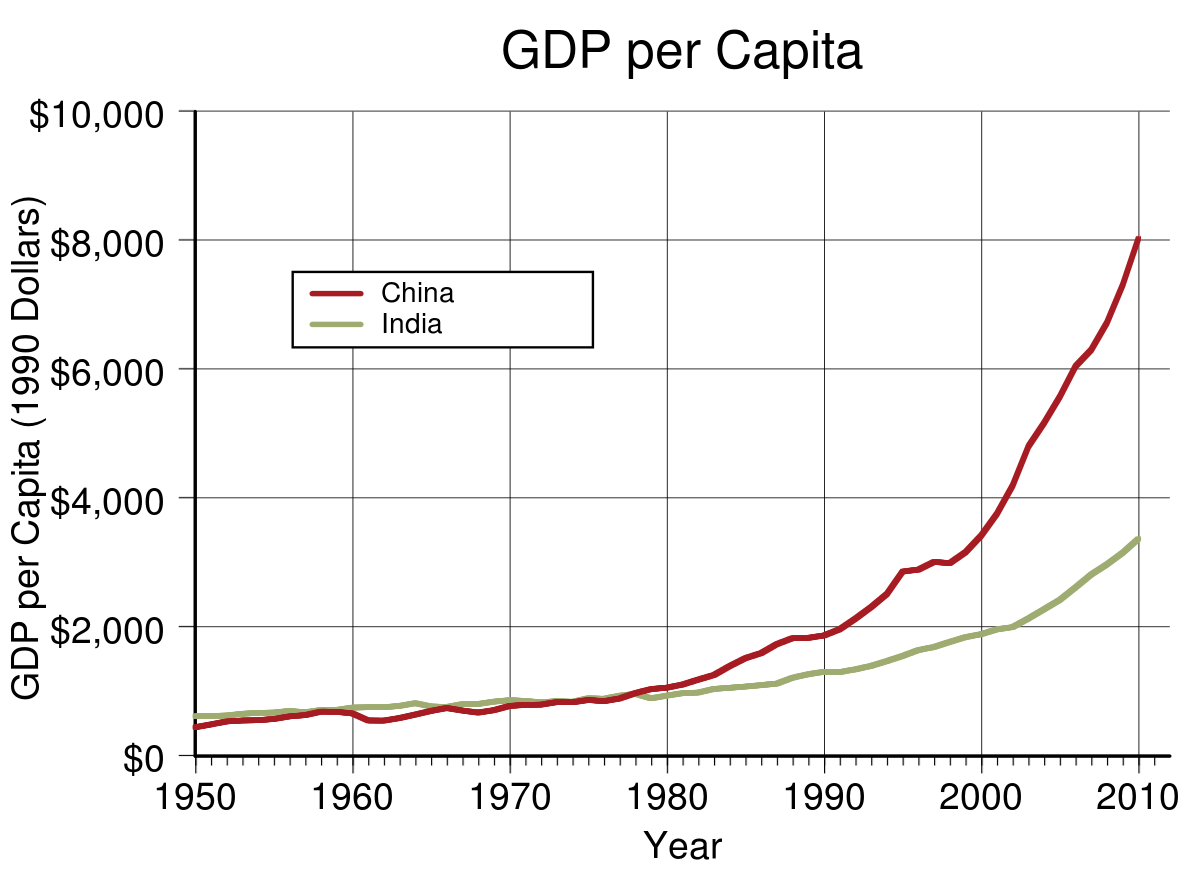Quote:
Originally Posted by sendler

Perfect example of machines displacing skilled human workers. One CNC machine is now doing the work that used to be done by several machinists. Automation displaces human workers. Creating a surplus of labor. Which places downward pressure on the leverage that the remaining pool of workers has in order to demand a higher wage. Overpopulation and globalization does the same thing by shifting production to a location where people literally "will work for food". Resulting in the average world labor pool experiencing downward pressure on wages. The "owners" of the factory take an even greater share of the profits and the workers get less pay with less leverage to demand a raise.
This is all very basic free market capitalism and should be easy to understand by anyone.
|
You're ignoring the rest of the capitalism story in order to maintain an ideological belief about the system, namely that even the lowest people in the workforce benefit from it. Those working for small wages in 3rd world countries make a little more than necessary to eat, creating a small amount of surplus than what is absolutely necessary to survive, which is better than what they had before.
It's true that capitalism seeks the lowest wage labor market that can adequately accomplish the production goals. Those markets over time increase in prosperity and wages rise also. So, the average world labor pool isn't experiencing downward pressure on wages due to capitalism, but increasing wages.
Can you identify when on this graph China made economic reforms to include capitalistic business practices?

The idea that capitalism pays the lowest wage it can and that is somehow unjust and evil is garbage. What other way is there to efficiently allocate labor resources? It's like being mad that people seek the best prices they can on goods they purchase. Should they be looking to spend as much as they can on goods and services? Are they evil for trying to maximize the resources they have? Is it unfair?
Your other point about automation eliminating jobs, especially blue collar jobs, is the interesting idea. That is the problem as technology shifts labor towards higher cognitive tasks and away from lower ones. Technology can grow by leaps and bounds, but human intellectual capacity can't, or at least not without the help of technology (genetic engineering). What to do about people who cannot find meaningful work is a very serious problem.
I have firsthand experience what happens when you warehouse people, providing all their basic necessities and not giving them a chance to participate in society; it's called prison. A universal basic income might solve the problem of how to feed people that aren't working, but it doesn't solve the problem of finding meaning in life. They essentially become prisoners passing time until they kick off.
Providing the economic needs of life for those at the lowest strata is only half the problem, and in my view, the less important half. Meaning and belonging is more important because it makes the suffering of life worthwhile, and we will all suffer tremendously no matter what economic strata we find ourselves in.